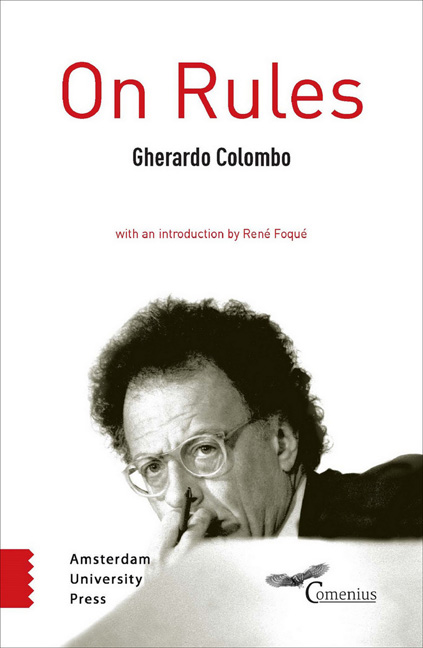Book contents
- Frontmatter
- Introduction: Gherardo Colombo’s Concern for the Democratic State under the Rule of Law: A Work in Progress
- Why?
- 1 An Imaginary Country
- Contents
- Part I The Ambiguities of Justice
- Part II Horizontal Society and Vertical Society
- Part III Towards a Horizontal Society
- Part IV How Do We Get There?
- Conclusion
- Acknowledgments
8 - From Subject to Citizen
Published online by Cambridge University Press: 24 December 2020
- Frontmatter
- Introduction: Gherardo Colombo’s Concern for the Democratic State under the Rule of Law: A Work in Progress
- Why?
- 1 An Imaginary Country
- Contents
- Part I The Ambiguities of Justice
- Part II Horizontal Society and Vertical Society
- Part III Towards a Horizontal Society
- Part IV How Do We Get There?
- Conclusion
- Acknowledgments
Summary
In relatively recent epochs in human history, the legitimacy acquired by law on the basis of its authorship and procedures went hand in hand with radical changes in the organisation of the state.
In the context of Enlightenment thought, around the mid-18th century, Charles-Louis de Secondat, Baron de La Brède et de Montesquieu, gave substance to an idea that was incubating at the time, and would later give rise to legality.
Previously, the monarch's power was truly absolute. The king was the owner of legislation, government, and justice: all powers were concentrated in his hands. He made laws, enforced them, and checked whether people's actions (including his own) were consistent with the norms he himself had introduced. The people who were ruled by him were completely at his mercy: they were subjects, and their relationships, possessions, and lives depended entirely on his unrestrained power. Except for the occasional instance that moved in the opposite direction – such as the Magna charta libertatum, which in 1215 restricted the power of the English monarch – this was the power structure which dominated most of humanity's history.
Enlightenment thought urged that the individual should be recognised as such, for the very fact that he or she exists. Such recognition implies that each person has to be protected against the interference of power, that he or she has to be granted freedom of movement and thought, and that his or her reasons can be accepted, even when they clash with the interests of power.
Montesquieu developed the organisational structure that would later allow subjects to become citizens. Namely, if power, now absolute and concentrated in the hands of one monarch, had been divided and shared among different institutions (in this case three: legislative, executive, and judicial, each having as their respective tasks to legislate, to govern, and to check whether laws are respected), each could have exercised only a part of it, and at the same time would perform a controlling and limiting function on the exercise of power by the other institutions, thus preventing possible excesses. Nobody would continue to be at the mercy of one single power manager, be it a person, an institution, or a faction of sorts.
- Type
- Chapter
- Information
- On Rules , pp. 46 - 48Publisher: Amsterdam University PressPrint publication year: 2016



